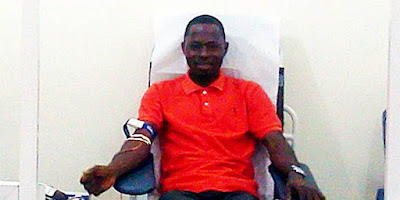Nordica Fertility Centre fêtes family to special tour of Ghana

As part of its philosophy of completing families and to mark the 12th anniversary, Nordica Fertility Centre, one of the leading assisted conception Centre in the country, recently provided its clients unique opportunity to bond with their completed families through what it described as the ‘Babies Picture Competition.’ The competition was hosted on Facebook and opened to all families who submitted pictures of their babies between the ages of zero and two years. The baby with the highest number of votes (Likes) emerged winner of the competition. To get all and sundry interested and involved in the competition, it was widely promoted using social media sponsored stories and syndicated across blogs other online channels. The competition which started from first week of April to April 29, with over 100 entries from different families across Nigeria, saw baby Barry Joel Adefisuka winning the overall prize. In fulfillment of Nordica’s plan for the winning family, the Nordica team to








